
WATCH: More than a dozen people, including the local First Nations, risked their own safety to save a humpback whale after it got tangled up in a fish farm anchor line. As Linda Aylesworth reports, they got it all on video
It took six hours and more than a dozen people to rescue a juvenile whale near the tiny First Nations community of Klemtu, north of Bella Bella.
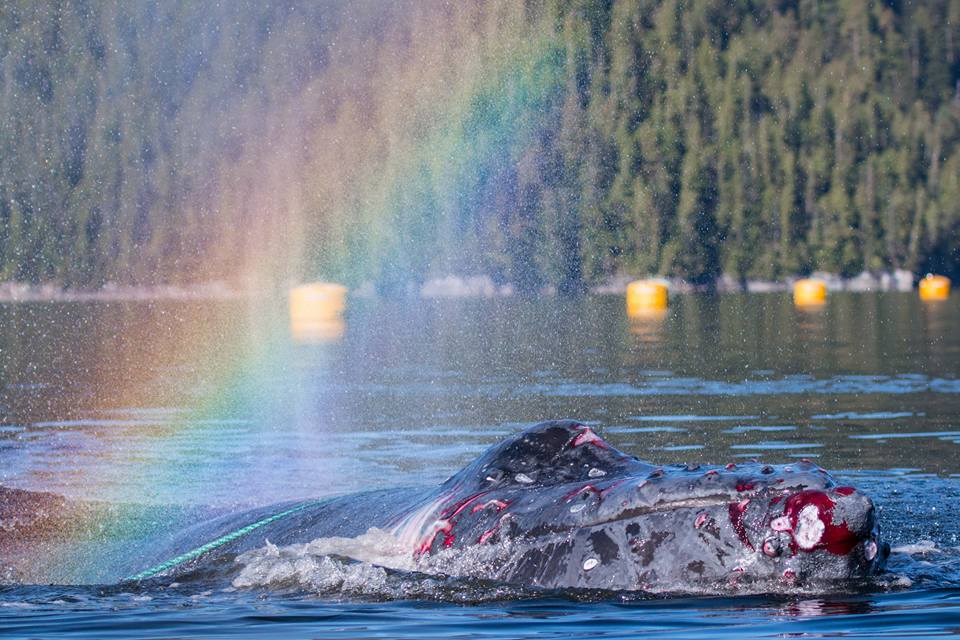
The 35-foot humpback whale became entangled in an anchor line near one of the empty aquaculture sites belonging to Marine Harvest, a local fish-farming company.
The company contacted the Department of Fisheries and Oceans, who dispatched a team of staff researchers headed by marine mammal coordinator Paul Cottrell to assess the situation.
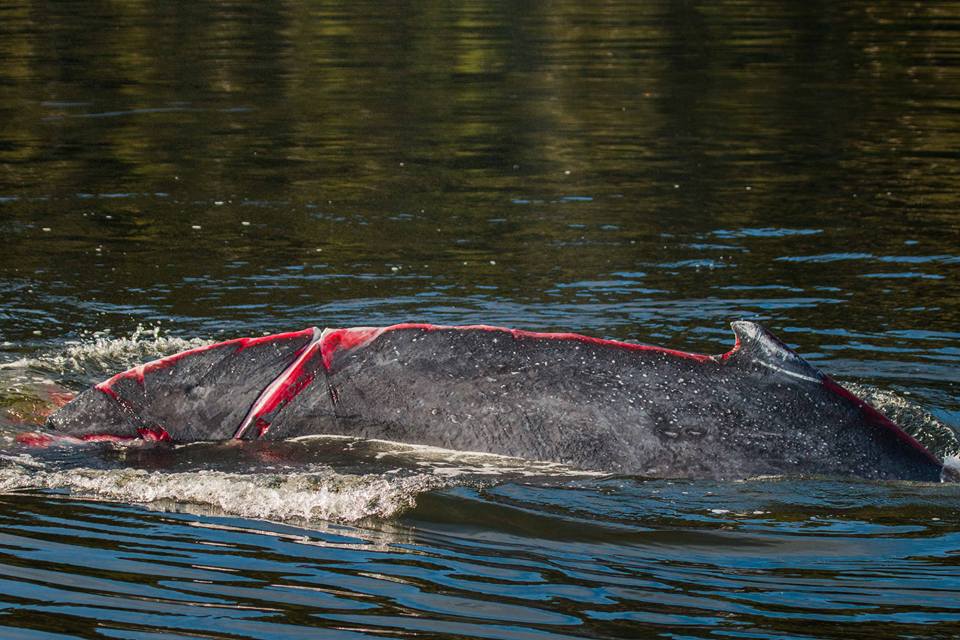
Cottrell says when his crew arrived they found the animal barely moving, trapped by an anchor line that was cutting into its skin.
“We knew this was serious and we didn’t have a lot of time,” says Cottrell.
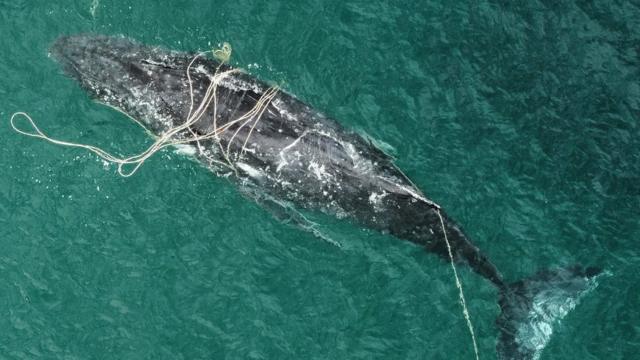
He says the animal was probably foraging and had its mouth open when it went through one of the anchor lines left in the water, which then got caught on its baleen, the filter feeder system in the whale’s mouth. He says whales will often do a spiral when they feel a tension from a gear line and that’s how they become entangled.

0:59 Raw: Rescuers work to save juvenile humpback trapped in B.C. fish farm anchor line
“We needed to know how the gear was wrapped through the whale’s mouth and around its body,” says Cottrell. “If we made the wrong cut, we may have freed the animal but it would still have gear on it. It was definitely a lethal situation.”
Throughout the highly technical rescue, Cottrell says the whale was struggling to breathe because it was being pulled down by the anchor line.

To make matters worse, it became very active during the rescue, flapping its tail and breaching, so Cottrell and his crew had to ensure their own safety.
Finally, six hours later and almost in total darkness, the team aided by local First Nations, watchmen and Marine Harvest staff managed to free the whale.
“It was an amazing feeling when we made that final cut and removed the rope,” says Cottrell.
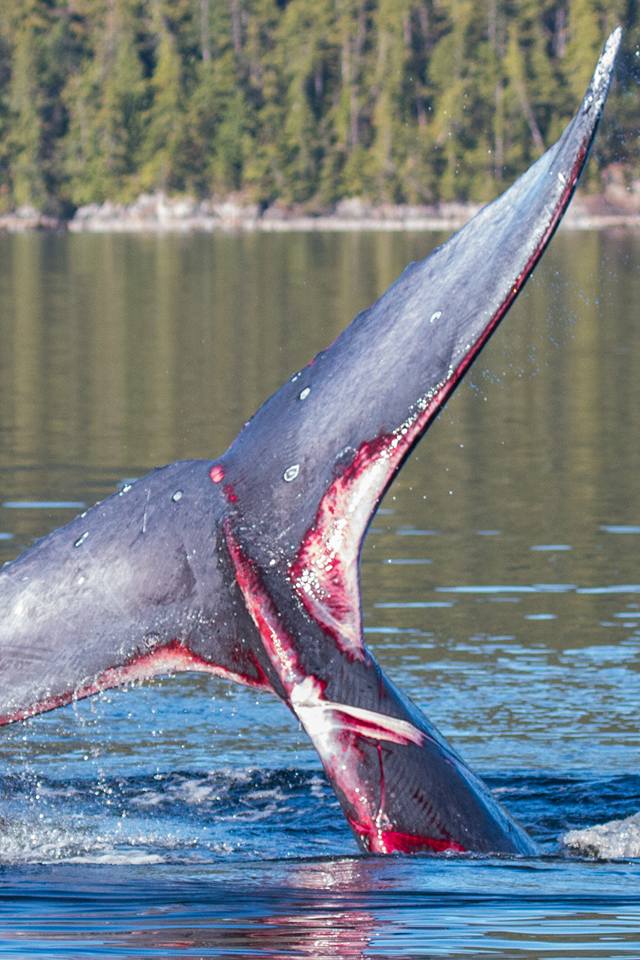
The team hopes the animal’s abrasions will heal up and the whale will fully recover. The coast guard and researchers in the area will monitor the animal over the next few months to ensure it is doing fine.
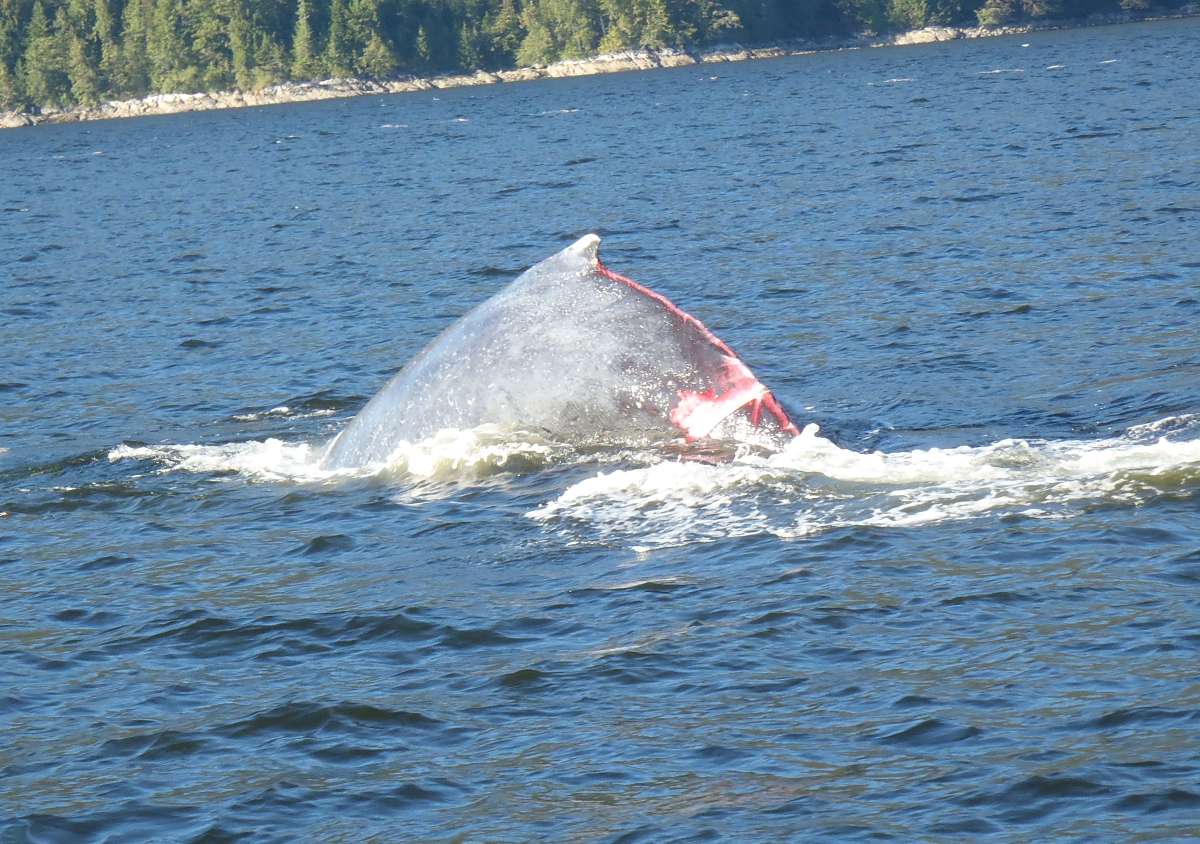
Cottrell says there is evidence to suggest that the tag line that went through the whale’s mouth came from the moorings of the nearby aquaculture facility. He says they will be reviewing the video of the rescue to investigate further.
Staff at Marine Harvest say local residents had reported a similar-sized humpback whale swimming lethargically and thought to be entangled with marine debris over the past month.
Ian Roberts with the company says they have never dealt with an entangled whale near their facility before.

“We will take a look at how our anchoring system may have contributed to this,” says Roberts. “If changes are required, we will make those changes at that site and any other sites where it may apply.”
The issue of marine debris entangling marine wildlife has been raising concerns of British Columbians in the last couple of years.
Cottrell says the majority of marine animal entanglement is caused by fishing gear.
“We pull a lot of American fishing gear off humpback whales, so it is an international issue,” he says. “These large whales travel huge distances and they can get entangled anywhere.”
Similarly, Cottrell says researchers in regions as far away as Hawaii are removing Canadian fishing gear from the whales in their waters.
“They are susceptible to any line in the water and entanglements do happen,” says Cottrell. “It’s a problem all over the world.”
